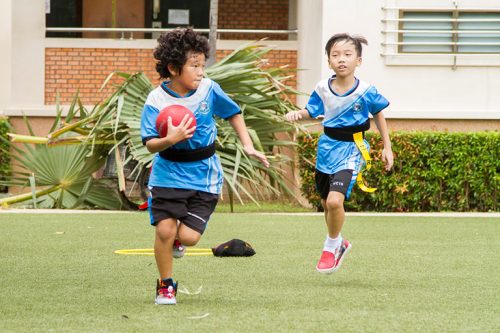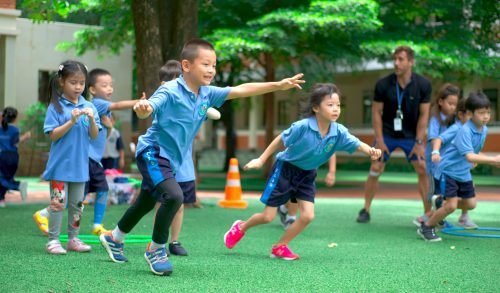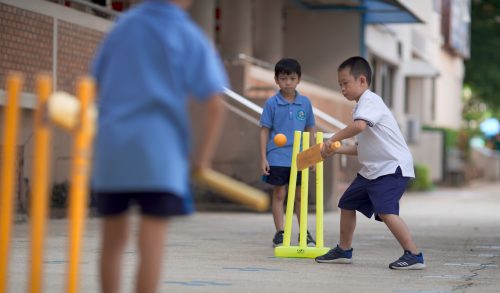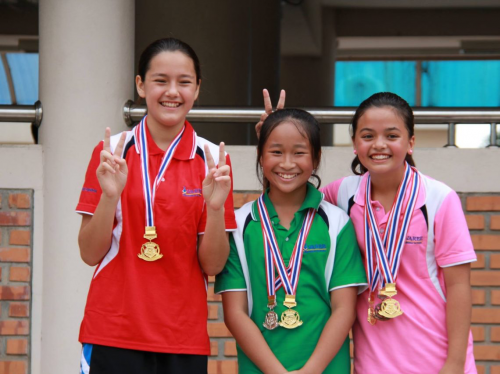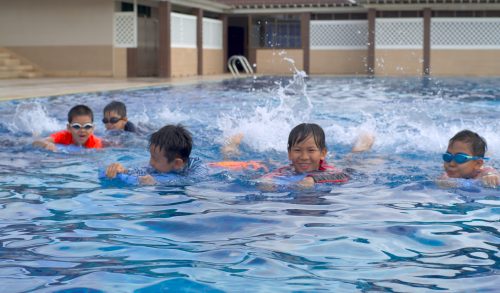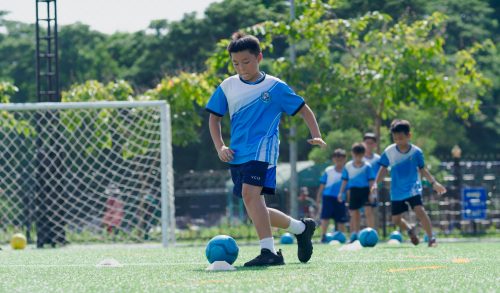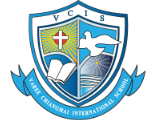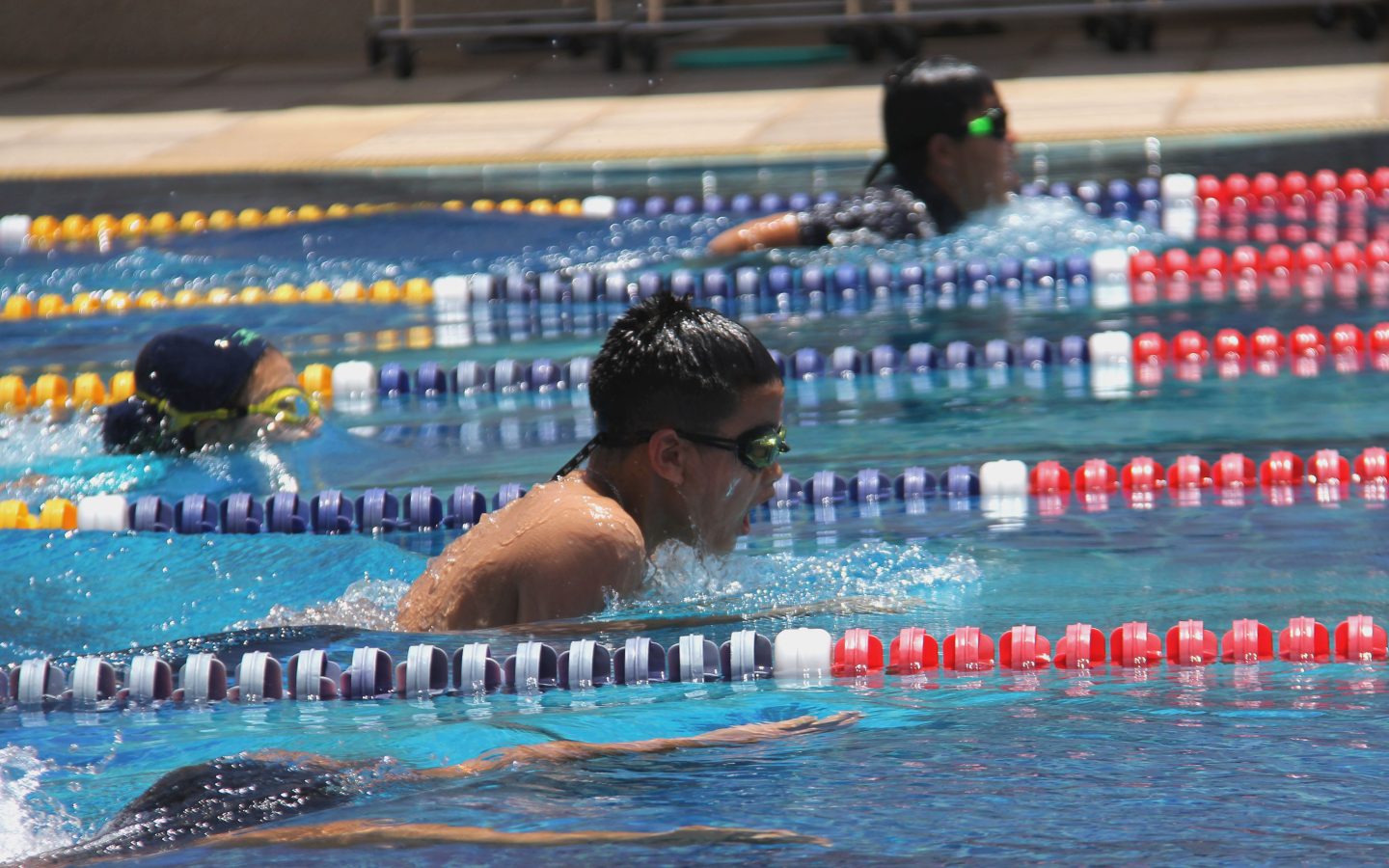
Sports
Physical Education is not a privilege; it is a basic human right. The facilitation of play, physical activity and sport should be at the forefront of every young person’s developmental journey. Physical Education is a core component of our student’s school life and we believe there is no other singular subject that combines the improvement of all three aspects of a child’s learning and development, more so than P.E.
At Varee Chiangmai International School we place a holistic focus on our students well-being. We are investing in our students physical, emotional and social well-being, through providing an extensive program of both competitive sport and recreational physical activity. All of which, will enable students to maintain and develop motivation, confidence, problem solving, independent thinking, creativity, teamwork and leadership.
Our Physical Education programme is inextricably linked to our academic programme. We believe in the power of sport, both independently and as a support system for academic attainment. Explicit research demonstrates the benefits of physical exercise, especially aerobic exercise, having positive effects on the brain function on multiple fronts, ranging from the molecular to behavioural level. According to a study done by the Department of Exercise Science at the University of Georgia, even briefly exercising for 20 minutes facilitates information processing and memory functions. Exercise increases heart rate, which pumps more oxygen to the brain. It also aids the bodily release of a plethora of hormones, all of which participate in aiding and providing a nourishing environment for the growth of brain cells. Recent research from UCLA demonstrated that exercise increased growth factors in the brain—making it easier for the brain to grow new neuronal connections. From a behavioural perspective, the same antidepressant-like effects associated with “runner’s high” found in humans, is associated with a drop in stress hormones. A study from Stockholm showed that the antidepressant effect of running was also associated with more cell growth in the hippocampus, an area of the brain responsible for learning and memory. At VCIS, we advocate that our students to not have to choose between sport and academics but rather understand the correlation between the two.
-
Early Years & Lower Primary
Our Early Years programme is based on the concept of a competency framework that is accountable for equipping students with physical literacy skills that are developmentally appropriate. Our curriculum encourages social and emotional development, embedding knowledge of health and nutrition, in addition to exploration of movement concepts, including balance, locomotor and manipulative. By creating a safe and fun environment we aim to foster an enjoyment of both explorative play and physical activity.
-
Upper Primary
Our aim is to expand upon the basic movement patterns and fundamental movement skills, learned during early years Physical Education. It is the mastery of these skills, which leads to the development of specialised movement patterns required for the participation in organised physical activities and sports for adolescents. FMS mastery is likely to be achieved through quality instruction and practice. It is during the primary years where fundamental movement skills are optimally developed in children, and are refined later into a sporting context, with sport specific skills.
-
Secondary
Our Secondary programme offers access, opportunity and choice across the wide spectrum of needs within the British International School environment. In Bloom’s taxonomy of learning (1956/revised 2000), he identifies 3 main domains of learning, cognitive, affective and psychomotor. Our Physical Education core curriculum covers over 15 sports throughout the year, and we facilitate learning in our Physical Education lessons in the same way we expect students to learn and achieve in the classroom, developing and mastering creativity, evaluation, analysis, application, understanding and remembering.
-
Inter-House Competition
We believe that providing access to a range of competitive situations is important. Competition provides motivation to achieve a goal; to demonstrate determination, creativity and perseverance to overcome challenges; and to understand that hard work and commitment lead to a greater chance of success. We believe all of our students should explore the concepts of both winning and losing graciously. In addition to this, our house system fosters a sense of belonging and purpose, working towards a common goal, collective achievement and cohesive and positive cross sectional interactions. At VCIS, we offer 10 inter-house events annually, from Early Years to KS5. We consider it a pleasure to observe our students thriving in this competitive, yet fun environment.
-
ECA’s (Extra Curricular Activities)
Our ECA timetable is both extensive and diverse, offering opportunities for students at both competitive and recreational levels. At VCIS, we offer ECA’s for our team players across all of the competitive sports within the annual CMAC sports calendar. Competitive clubs in football, futsal, basketball, volleyball, badminton, swimming, athletics (track and field) and cross country. We offer recreational clubs with opportunities to compete in major Thailand based competitions, in Rugby and Cricket. We also offer recreational clubs in swimming, taekwondo, gymnastics and hockey.
